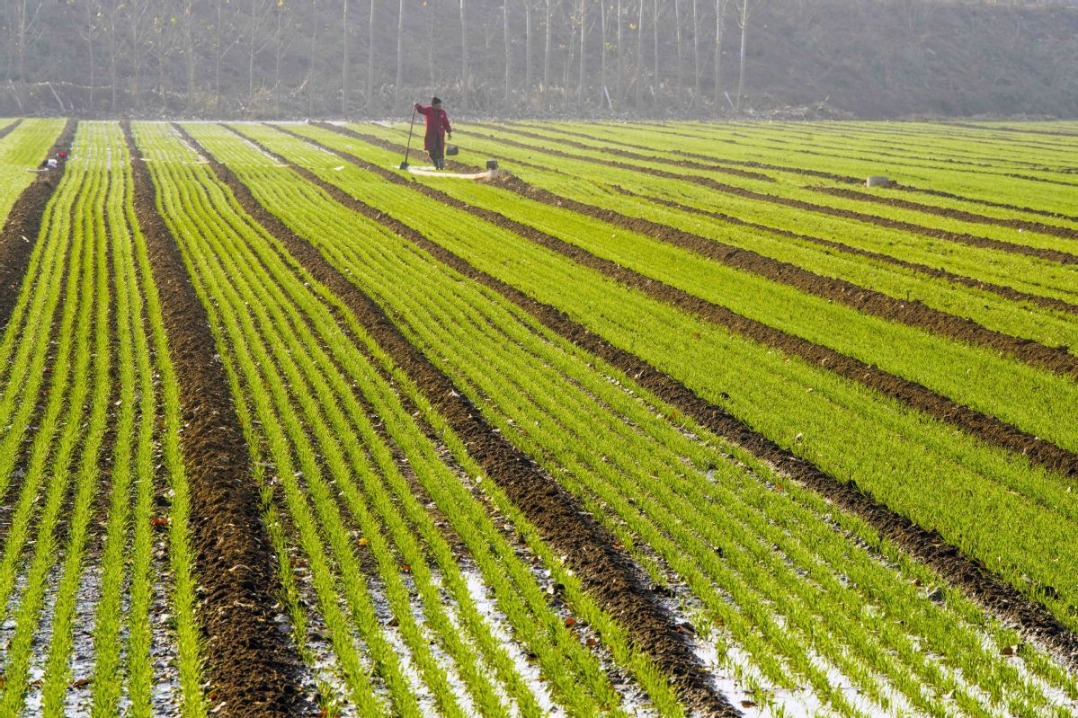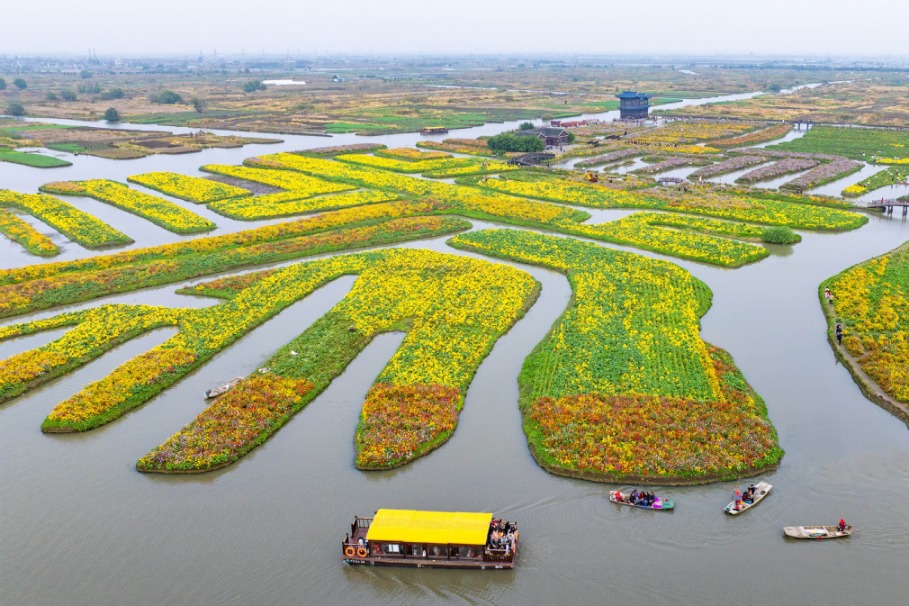Biodiversity threatened in drought-hit Poyang Lake


You can reach into the cracks in the earth and grab fish from the dry bed of what was, until recently, China's largest freshwater lake.
Shocking videos of hundreds of people picking up stranded fish from the bed of Jiangxi province's Poyang Lake — where sustained drought has turned nearly all the 3,150 square kilometers of surface water into parched wasteland — have gone viral on the Chinese internet.
Because of scorching heat waves and scant precipitation since July — around half that of normal years — the lake's surface area has shrunk by more than 90 percent.
In September, the lake's Xingzi hydrological station measured its lowest water level since record keeping began in 1951, as the lake encountered the dry season more than two months earlier than the average from 2003 to 2021, according to the provincial meteorology department.
Dai Nianhua, a researcher at the Jiangxi Academy of Sciences, said that the habitat of aquatic plants and animals has been substantially degraded.
"Some aquatic plants, fish and animals that live on the lake bed, such as freshwater mussels, crabs and shrimp, have died," he said. "Entering the dry season too early will significantly influence the biodiversity of the lake and the wetland."
However, aquatic creatures are not the only casualties of the persistent drought. More than 700,000 migratory birds also face great peril as they fly to what had long been their lakeside habitat from October to March.
Poyang Lake attracts 98 percent of the world's 4,000 white cranes, 95 percent of the oriental white storks and 70 percent of white-naped cranes, according to Beijing News. It is one of the most important wintering grounds for such birds on their long seasonal journeys between East Asia and Australia.
"The birds will be seriously affected if the aquatic animals die," said Duan Qingxian, director of the Poyang Lake Wildlife Rescue Association. "Those that feed on water plants, shelled creatures and fish will experience food shortages. The muddiness also makes it more difficult for the birds to find food."
Duan has lived in nearby Duchang county for more than 40 years.
Sedge is one of the most important foods for geese and ducks. It should sprout in the area in November but has already grown as high as 50 centimeters and is past its prime. Only sedge eight to 28 days old is suitable for birds to eat. By the time the waterfowl arrive this year, its fiber will be too hard for them to consume.
Cities around the lake have rolled out measures to cope with the situation. Many places have pumped water from Poyang Lake's main channel to small ponds on the otherwise dry bed, which the birds usually inhabit during the dry season.
The Chinese Academy of Sciences' Institute of Geographic Sciences and Natural Resources Research has been working with the Jiangxi Poyang Lake National Nature Reserve on an experiment involving 16,000 square meters of grassland to find an effective way to encourage sedge to regrow by mowing it. The findings will be shared with other interested parties around the lake.
Yu Changhao, who works with the Jiangxi Department of Forestry's wildlife and plant protection office, said that "cafeterias" — patches of vegetation — have been prepared for the birds.
In Yugan county, for example, over 70 hectares of unhusked rice have been left in the fields. And the local government has asked fishpond owners not to scare away the birds. "Compensation will be paid to the farmers and pond owners," Yu said.
Bird-protection teams and volunteers patrol the lake bed at least 10 hours a day, picking up trash and asking visitors to leave, to create a quieter environment for the birds.





































